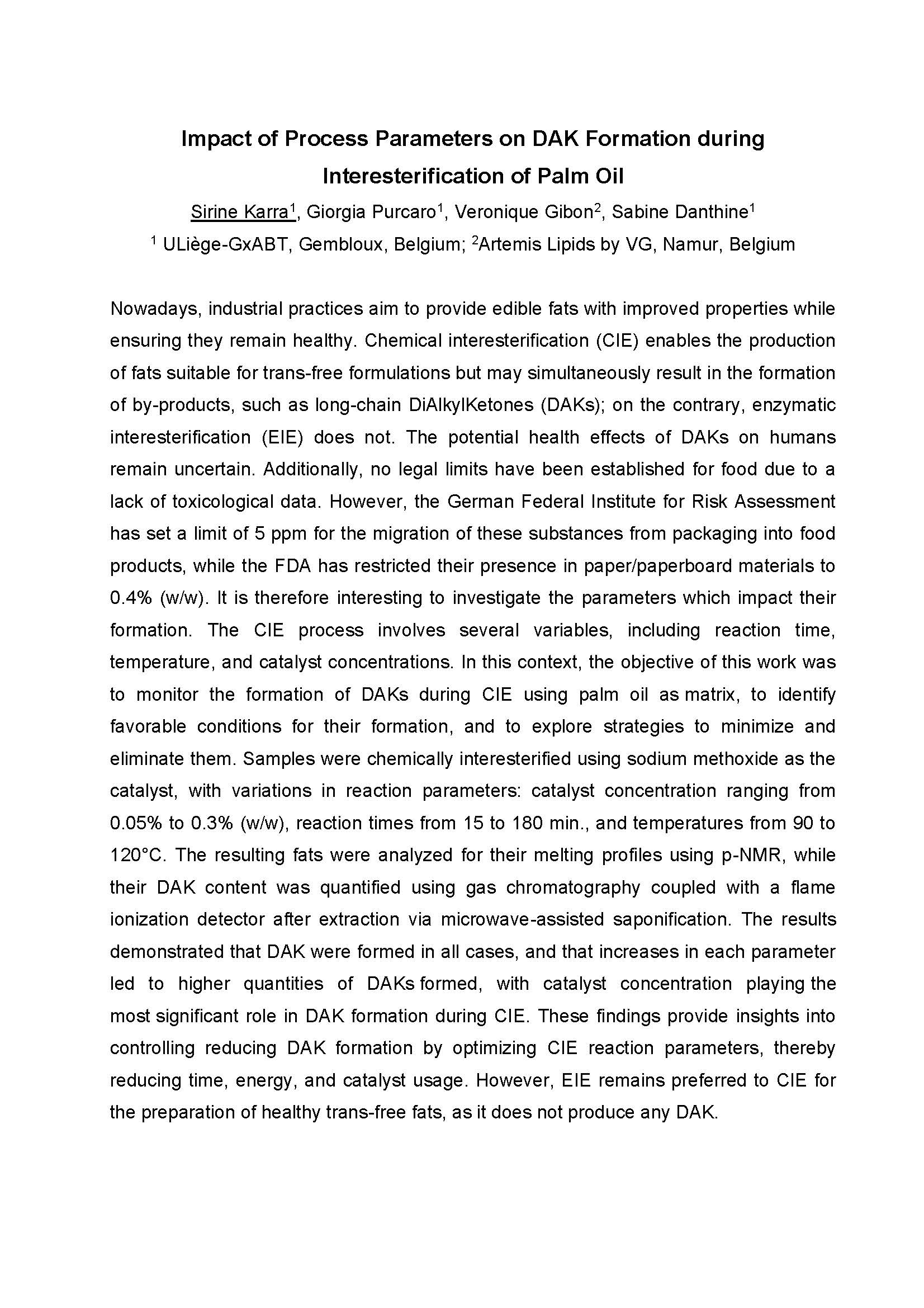Nowadays, industrial practices aim to provide edible fats with improved properties while ensuring they remain healthy. Chemical interesterification (CIE) enables the production of fats suitable for trans-free formulations but may simultaneously result in the formation of by-products, such as long-chain DiAlkylKetones (DAKs); on the contrary, enzymatic interesterification (EIE) does not.
The potential health effects of DAKs on humans remain uncertain. Additionally, no legal limits have been established for food due to a lack of toxicological data. However, the German Federal Institute for Risk Assessment has set a limit of 5 ppm for the migration of these substances from packaging into food products, while the FDA has restricted their presence in paper/paperboard materials to 0.4% (w/w). It is therefore interesting to investigate the parameters which impact their formation. The CIE process involves several variables, including reaction time, temperature, and catalyst concentrations. In this context, the objective of this work was to monitor the formation of DAKs during CIE using palm oil as matrix, to identify favorable conditions for their formation, and to explore strategies to minimize and eliminate them. Samples were chemically interesterified using sodium methoxide as the catalyst, with variations in reaction parameters: catalyst concentration ranging from 0.05% to 0.3% (w/w), reaction times from 15 to 180 min., and temperatures from 90 to 120°C. The resulting fats were analyzed for their melting profiles using p-NMR, while their DAK content was quantified using gas chromatography coupled with a flame ionization detector after extraction via microwave-assisted saponification. The results demonstrated that DAK were formed in all cases, and that increases in each parameter led to higher quantities of DAKs formed, with catalyst concentration playing the most significant role in DAK formation during CIE. These findings provide insights into controlling reducing DAK formation by optimizing CIE reaction parameters, thereby reducing time, energy, and catalyst usage. However, EIE remains preferred to CIE for the preparation of healthy trans-free fats, as it does not produce any DAK.
